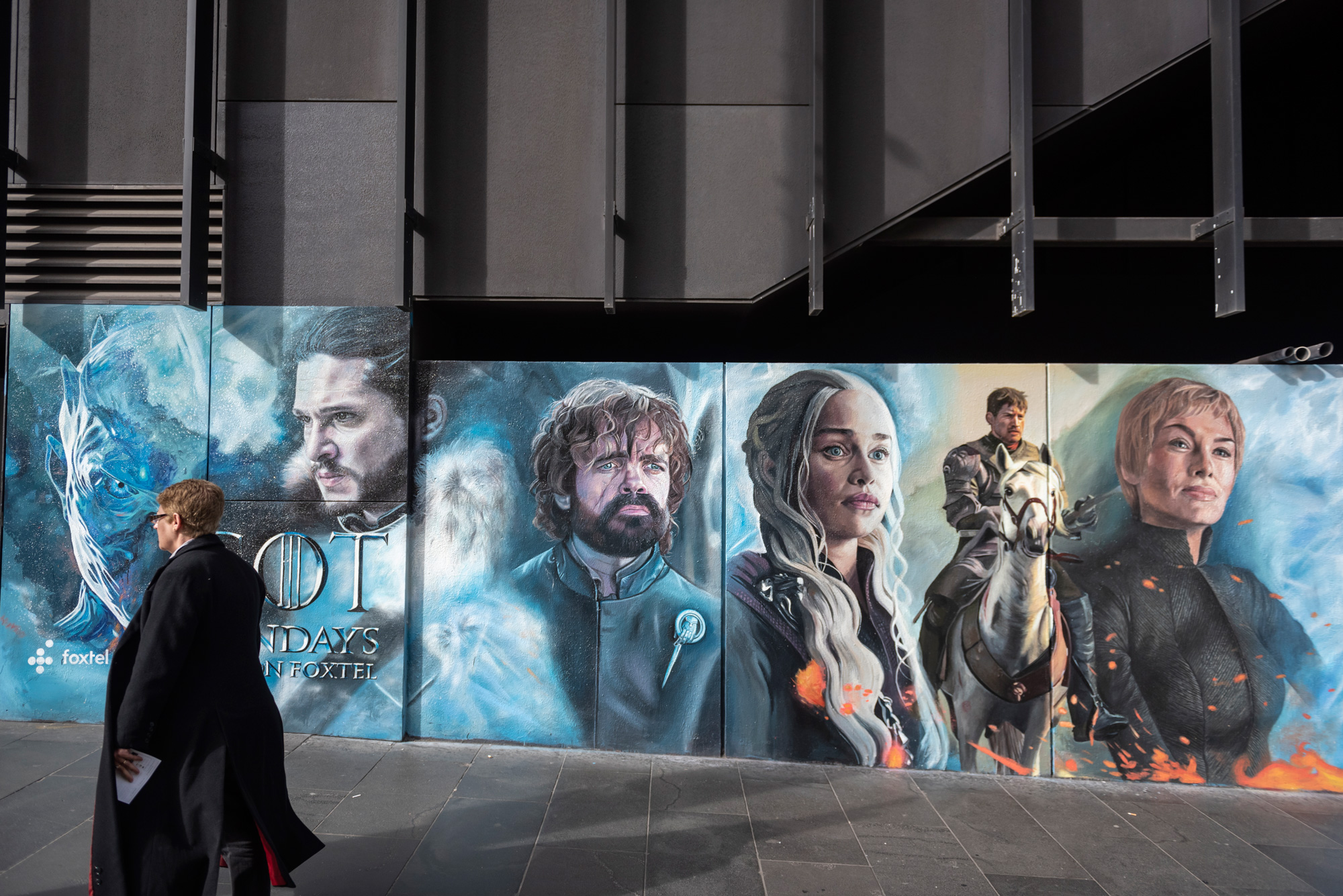On the path to ruling the seven kingdoms, a true superstar of the realm took a dramatic turn in Sunday’s episode that has lots of fans feeling uneasy. Janina Scarlet, a clinical psychologist, author and dedicated fantasy fan, says the Game of Thrones letdown is real.
But first, if you haven’t yet heard what went down on “The Bells,” the penultimate episode of HBO’s hit series, take a moment to go watch season 8, episode 5. Then meet me back here.
Because there are spoilers aplenty ahead! Got that? OK.
Great, you’re back. So, Queen Daenerys and her dragon-baby Drogon easily force Cersei’s troops to surrender and then torch the town anyway. WTH, right?
The one-time breaker of chains and leading contender for both the Iron Throne and our hearts has very rapidly descended toward becoming the Mad Queen, or at least the “Queen of the Ashes,” she once swore she’d never be.
Clinical psychologist Janina Scarlet says Game of Thrones has functioned as a kind of refuge for trauma survivors who were able to feel and establish a sense of connection with characters who endured suffering from physical disfigurement to the loss of multiple loved ones.
So Khaleesi’s heel turn is particularly troubling for fans who might have felt a true sense of connection to her character following her epic story arc, which has seen Dany escape some awful circumstances to literally walk through fire, free the slaves, bring Dragons to the north and help rally the troops to defeat the Night King. She has basically been Abraham Lincoln, Hercules and Winston Churchill combined into one person riding a dragon.
Scarlet uses the term “parasocial relationship” to describe the bond a fan might form with a fictional character or celebrity.
“Parasocial relationships can help fans to feel less alone in their mental health struggles, can inspire hope, and create a dialogue about trauma and recovery,” Scarlet explained. “Seeing a person who came from an abusive childhood, experienced violence, assault and tragedy can inspire many other trauma survivors, especially women, to better understand and process their traumatic experiences as well.”
Scarlet is also a self-proclaimed geek, author and creator of Superhero Therapy, which integrates beloved characters from comics, science fiction, fantasy and video games into certain types of therapy. Scarlet, who’s based in San Diego, works with clients to identify their own skills and strengths using characters like Veronica Mars, who has a talent for detective work, as role models.
Scarlet agreed with countless fans on social media—and everybody watching in my household—that the Mother of Dragons’ slaughter of thousands at King’s Landing doesn’t exactly jibe with the image of Daenerys Targaryen we’ve become familiar with from the good old, chain-breaking days in Meereen and beyond.
“For many fans, especially women, who might identify with Daenerys in terms of being a survivor, this sudden change can be both confusing and emotionally distressing. Such story arc can appear to take away from agency that many trauma survivors may develop through parasocial relationships.”
She’s also concerned the depiction of extreme violence against a multitude of unnamed characters in “The Bells” could trigger fans.
“It is my hope that in the future, writers of television and films will consider having cultural and/or mental health consultants on staff, especially when writing storylines dealing with trauma, shock, and horror in order to be conscientious about the potential effects the particular episode or scene may have on the viewers.”
HBO did not immediately respond to a request for comment.
Sunday’s Game of Thrones finale is likely to come with more violence and shocking turns, but in the future perhaps we’ll see more heroes who make mistakes and who still serve as role models when they do.
This article was originally posted on CNET by Eric Mack.
The content of this page is only for informational purposes and is not intended, expressly or by implication, as a guarantee of employment or salary, which vary based on many factors including but not limited to education, credentials, and experience. Alliant International University explicitly makes no representations or guarantees about the accuracy of the information provided by any prospective employer or any other website. Salary information available on the internet may not reflect the typical experience of Alliant graduates. Alliant does not guarantee that any graduate will be placed with a particular employer or in any specific employment position.
